this is my code:
for col in df:
if col.startswith('event'):
df[col].fillna(0, inplace=True)
df[col] = df[col].map(lambda x: re.sub("\D","",str(x)))
I have 0 to 10 event column "event_0, event_1,..." When I fill nan with this code it fills all nan cells under all event columns to 0 but it does not change event_0 which is the first column of that selection and it is also filled by nan.
I made these columns from 'events' column with following code:
event_seperator = lambda x: pd.Series([i for i in
str(x).strip().split('\n')]).add_prefix('event_')
df_events = df['events'].apply(event_seperator)
df = pd.concat([df.drop(columns=['events']), df_events], axis=1)

Please tell me what is wrong? you can see dataframe before changing in the picture.